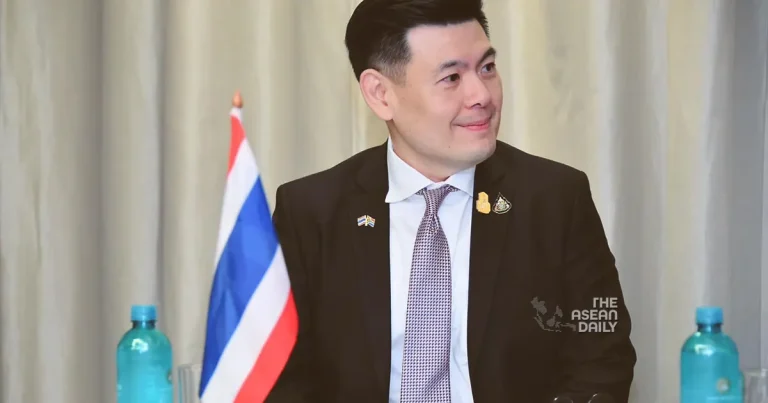10-5-2024 (BANGKOK) Negotiations for a landmark free trade agreement between Thailand and the European Union are expected to conclude in 2024, the Thai government announced yesterday. The potential deal comes as the Kingdom works closely with EU officials on addressing concerns over illegal, unreported and unregulated (IUU) fishing practices.
The remarks were made by Minister Jakkapong Sangmanee at an event in Bangkok celebrating Europe Day, which commemorates the 1950 Schuman Declaration that paved the way for greater European integration after World War II. Addressing ambassadors and dignitaries, Jakkapong expressed confidence that Thai-EU free trade talks would be finalized this year.
“This FTA will not only help stimulate economic growth in both regions but also benefit our businesses and inter-regional supply chains,” the Minister stated. He reaffirmed Thailand’s commitment to sustainable economic policies and combating IUU fishing to strike “the right balance between sustainability and the livelihoods of laborers.” Closer EU engagement on this issue was welcomed.
For his part, EU Ambassador to Thailand David Daly highlighted the potential mutual benefits an FTA could unlock. He noted that European investment has already created over 160,000 jobs in the Kingdom, with the EU ranking as Thailand’s third-largest foreign investor. However, Daly stressed that “both sides could do more together” in areas like sustainable development, climate action and maritime governance.
The potential trade pact has been years in the making, with formal negotiations launched in 2013 before stalling over agricultural disagreements and human rights concerns. However, the recent reenergized talks reflect a wider EU push for new trade partnerships across Southeast Asia to better compete with China’s economic clout.
While an FTA could provide a major boost for Thai exports, particularly in sectors like automotive and agri-foods, the issue of illegal fishing has emerged as a key sticking point. In 2015, the EU issued Thailand a “yellow card” warning over failings to monitor and regulate its commercial fishing industry effectively.
Progress has been made under a revised legal framework, but human rights groups accuse Thailand of not going far enough to protect migrant labor and marine environments. The EU continues to wield the threat of trade sanctions should reforms stall.
For Bangkok, concluding the FTA would mark a significant economic and geopolitical win at a time of heightening US-China tensions in the region. Thai officials remain optimistic that outstanding issues can be resolved through further negotiations in 2024.




